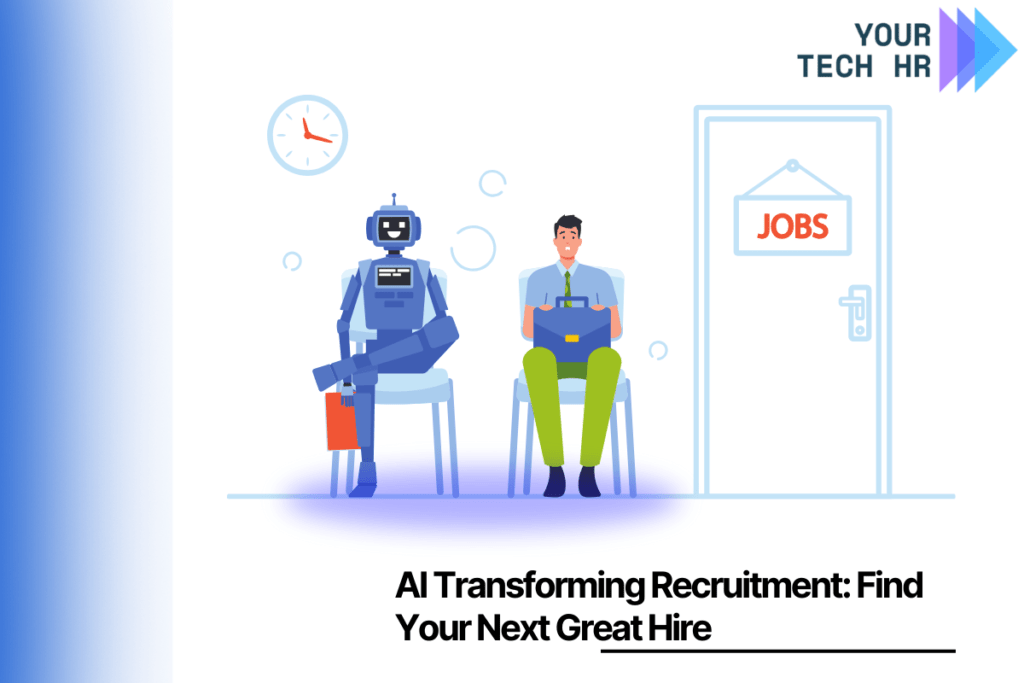With increasing competition in the marketing sector, employers and selectors often explore novel approaches to identifying and engaging the best candidates and reducing their time to hire. The use of AI and ML in recruitment has now become prevalent since it has revolutionized the recruitment industry. In addition to conventional CVs, such skills assessments have become well-accepted practices of uncovering hidden gems, and as clues to future employee productivity.
In this article, we will discover the best and the newest approaches to recruitment using AI, the role of machine learning in talent acquisition, and the effects of using predictive analytics and data-driven recruiting. We will also explore the advantages of adopting AI in identifying the perfect talent for a company and new hire function automation, chatbot and cognitive technology in the recruitment process.
Beyond Resumes: AI Skills Assessments for Identifying Hidden Talent
During the regular recruitment, there is employment of resumes to assess candidates by their qualifications. Nevertheless, resumes are not always highly informative and effective in revealing abilities and further potential of a jobseeker. That is why AI skills assessments are beneficial here. These assessments use the intelligence of algorithms and the strength of the ML models to gauge the potential of candidates about their competency more accurately.
The Need for AI Skills Assessments
Enhancing Efficiency: The conventional resume review process is docketing and can compel entities to review numerous applications, and it is highly subjective. Pre-employment AI skills assessments help reduce bias in the screening process and are timesaving compared to assessments done manually.
Identifying Hidden Talent: People may not always be able to capture their best selves and capabilities on their resumes. An AI test effectively helps the employers to screen out the best skills among the candidates by just focusing on the overall experience and higher education.
Predicting Job Performance: AI skill assessments employ similar algorithms such as ML to estimate performance of a candidate in their respective job, according to the results of the assessments. This is beneficial to the recruiters, especially when hiring candidates since they can retain most of the employees.
AI-Powered Recruitment Trends
The recruitment industry is witnessing a paradigm shift with the integration of AI-powered technologies. Let’s explore some of the key trends shaping the future of recruitment:
Machine Learning in Hiring
Through automated candidate screening, predictive analytics, as well as data-driven hiring decisions, artificial intelligence-based programs and algorithms have impacted the hiring process in a dramatic way. Using the ML algorithms sifts through vast volumes of data to provide inferences that could determine the suitability of candidates to certain positions.
Predictive Analytics for Talent Acquisition
Often referred to as Business Intelligence, Predictive analytics involves using past data to make future projections. Relative to talent acquisition, predictive analytics can be utilized in determining the best sources of talent, expected candidates’ performance, and the most effective ways of recruiting them. According to the available data sets, for instance, from social media accounts and past performance, recruiters get to enhance the recruiting process for candidates.
Automated Candidate Screening
Electronic rescreening or electronic screening is a process that involves using algorithms that sort through resumes and evaluate the suitability of the candidates. This way, the work of the recruiters will be made easier, and they will also be able to avoid bias while at the same time making the right hires in record time. Online self-assessment and resume ranking systems can identify candidates with the right qualifications based on their resumes, cover letters, and other enclosed documents.
Talent Intelligence Technologies
Talent intelligence technologies are often based on AI, ML, and big data for collecting useful information regarding the talent market. They might help recruiters track patterns and see what competitors are up to and then make decisions based on facts. Recruiters need to manage and leverage talent intelligence technologies to improve their scheduling, drive, selection, and retention of talent.
Recruitment Automation Trends
Recruitment automation refers to the use of technologies such as AI and ML in the optimization of various processes throughout the recruitment funnel. In all aspects, starting from reviewing resumes to scheduling an interview, automation offers time, reduces paperwork and the time taken besides boosting efficiency. Some of the definitive trends in recruitment automation include the use of chatbots, automated interviews, and artificial intelligence in recruitment software.
Cognitive Recruiting Strategies
Machine learning techniques used in cognitive recruiting applied AI tools to the recruitment process. To influence human cognition AI tools can be used to study data about the candidate, estimate his match with jobs, and make the candidate experience more friendly. On the same note, it is also important to acknowledge that through the current advancement in cognitive technology it is now possible for recruiters to perform virtual interviews, determine soft skills and enhance overall recruitment performance.
AI Recruitment Technology: Advancements and Benefits
AI recruitment technology encompasses a wide range of tools and platforms designed to enhance the recruitment process. Let’s explore some of the key advancements and benefits of AI-powered recruitment technology:
Automated Candidate Screening
Technological advancements have led to the development of AI in scanning resumes, covering letters and other application records known as automated candidate screening. Using these tools can be helpful in that they can sort through candidates and find those that meet particular or given requirements, thus reducing the time required by the recruiter. In this way, the use of screening tools helps to fulfil the tasks of the recruitment quickly and efficiently, and the recruiters can concentrate on the essential and time-consuming tasks, like interviewing and communication with candidates.
AI in Talent Acquisition
AI technologies can augment the talent acquisition process by simplifying administrative tasks, desensitizing disparate treatment, and strengthening decision-making. So, incorporating AI into the hiring process means that huge quantities of candidate information can be channeled, processed, and patterned in ways that suggest job fit. This can help the recruiters to make the right decision and enhance the overall quality of with all facets of the hires.
Machine Learning Recruitment Tools
Machine learning recruitment tools customize the recruitment process by analyzing candidate data through Machine Learning algorithms to predict job performance. Several factors like skills, work experience, and compatibility with the type of position that a candidate is being considered for are taken into account. Applying the techniques of ML, recruiters can help potential employers to minimize subjective impressions and ensure the high efficiency of the selection.
Chatbots in Recruitment
Recruitment chatbots have been established to be a valuable tool in the current market to ensure that the candidates’ interviewing process is highly focused, engaging, and interactive. Chatbots can interact with the candidate, respond to any questions he/she may have, and gather necessary data. By automating some of the communications, the recruiters can properly spend time engaging with candidates and having more meaningful conversations.
AI-Driven Interview Processes
Automated interviews use NLP and SA techniques to analyze candidates’ responses during interviews. Designing an AI-based tool can be done based on the evaluation of the verbal and written communication of the candidates for positions, keywords, and sentiment matches. It can also be of immense help to recruiters since it can influence their decision making and even enhance the quality of interviews.


